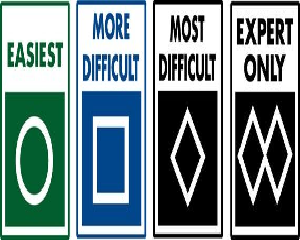Blog
Debate, Discussion, Or Anger?

DEBATE, DISCUSSION, OR ANGER?
John’s colleague arrived at the bar for a few moments to unwind after work. They greeted each other, ordered a beer, and started small talk. In a matter of minutes, the conversation changed its tone. What looked to start as a discussion rapidly turned into what appeared to be an argument. The bar was an up-scaled establishment that one would not expect a brawl.
The bar tender walked up to remind them both that they were being loud and asked them to leave if they continued. Shocked at their own behavior, they were embarrassed and apologized profusely.
What happened to cause this discourse?
This same scenario is played out daily in almost every arena. Something is said that established more of an emotional response than a reasonable expression. Why is it that reasonable individuals lose their emotional sensibility?
Recently, I attended a seminar that covered the Law regarding self-defense. One of the instructors emphasized that there are only three reactions to a confrontation: Fight, Flight, or Freeze. He went on to say that your response to a given situation may differ according to the circumstances.
His point was that if someone never examines the possibilities of, “What happens if?” We can not expect to rely on our reasoning ability, our brains do not work that fast, hence FREEZE. Conditioning ourselves to think about our response is a prerequisite to reacting appropriately. Especially, when it is a life or death situation.
When does one prepare how to response, only in life or death situations or is this level of preparation important in other areas, and to what degree?
On 8/19/18 Seth Godin wrote a blog, “Making it Political.” He highlighted, “the difference between actual discussion (where we seek the right answer) and a political one is simply: in a political discussion, people don’t care about what’s correct or effective or true. Facts aren’t the point. The honest answer to, ‘if it could be demonstrated that there’s more effective or just solution to this problem, would you change your mind?’ is, for political question, ‘no’… ‘We are engaged in Tribal Conflict’.”
John’s bar room discussion lead to a tribal conflict, and that meant the end of reasonable think. It became an argument out of anger not to exchange ideas but rather to emerge in victory.
Let us focus on one aspect of an uncontrolled reaction; life is stressful, and stress gets thrown on us much like an argument that John and his colleague experienced; spontaneously. Can one prepare for such an incident? Maybe the better questions would be, “Why would I even try to prepare for such interactions?”
In his book, “Biology of Belief” David Lipton indicates that stress inhibits growth. Growth does not take place by merely removing stressors. For growth takes place when we actively seeking joyful, loving, fulfilling lives. In other words, growth accelerates while one is in a nurturing state.
What growth are we talking about? It is biological growth, repairing, and maintaining a sound physical equilibrium.
In short, our bodies are always recovering from a deteriorating place. That is, we a constantly needing to rebuild, revitalize, and nourish our bodies. Lipton indicated that this process of growth is detrimentally inhibited when stressors are present.
John’s interaction, in the bar, was voluntary and self-induced. The same was true for his colleague. A healthy discussion is not detrimental to health of the individuals involved. In fact, it is helpful because it is a social interaction that is necessary for our survival and wellbeing.
However, when the discussion goes to “making it political,” a detrimental element is injected that is harmful – Stress. Anxiety to win, shutting down an open mind and deliberate battling produces a non-growth environment. It leaves the participants angry.
Anger does harm to your heart, at significant rate. This is an accumulative process, over time the effect of anger damages the coronary arteries, among other things. Other factors can add to this destructive environment, these elements are all are stressors that inhibit the repairing process of the body.
You may not be able to control what impetus is laid on you, but you can learn how to control your response to them. This learning may be the best medicine you can ever take.
Fight, Flight, or Freeze: preparing for the inevitable may seem daunting however, dealing with your reactions could save your life. Not just in confrontational response, but also in maintaining your body in the environment of growth throughout life.
That choice is yours. How much time would be worth the effort to gain control over the exact thing that can shorten your life?
Anger, Anxiety, and Depression all deteriorate our bodies. Has anyone aided you in dealing with these elements? Does it make sense to deliberately prepare yourself to your responses, because the response is what affect you in growth?
I emphasized Optimism and Hope as elements affecting your attitude toward yourself, in an earlier blog. These are attitudes that help maintain an outlook that coincide with preparing how to control one’s reactions. Any event can be view pessimistically or optimistically. The fallout from that choice can either shorten or lengthen your life.
When someone states that, “You are in control of your own destiny.” It very well may mean, you are in control only of your own reaction and that will determine your destiny.
Benjamin Franklin wrote, “Without continual growth and progress, such words as improvement, achievement, and success have no meaning.”
In the effort to become successful, it may very well be that adding reaction preparation into the mix may yield more dividends than any of the other learned skill.
Keeping cool in a crisis is a leadership quality that is more rare than prominent.
Stress keeps us dumber.
It is just the way the brain works, unless action is taken to change responses.
This is not about tribes, it is about you; growth, enhanced understanding, and seeking a fulfilled life.
Let’s try to tie this all together. Preparing ourselves for dangerous encounters and preparing against our own spontaneous reactions is not that much different. Both need preparation to encounter each with the right response for the occasion.
An examined life is a worthy life. Do we encourage people to examine their beliefs, integrating their own belief system that was established by them rather than a group, or tribe?
Stress makes us dumber and it can shorten our lives. Knowing this ought to encourage us to find an antidote. Asking the question, “What happen if?” May be a real good start to seeking some answers from which to start examining our responsiveness.
Attila Horvath, author
attilahorvath.net





